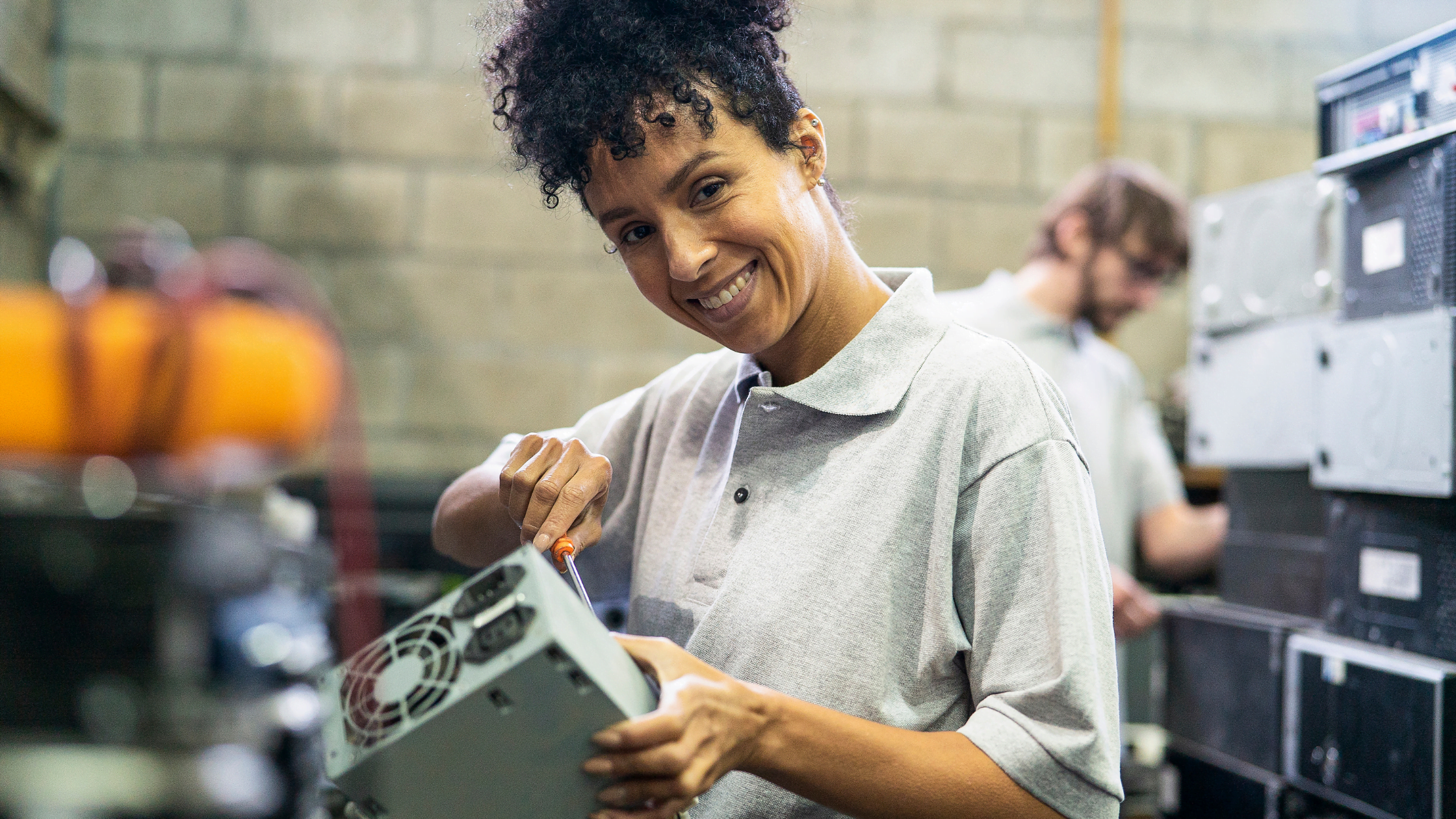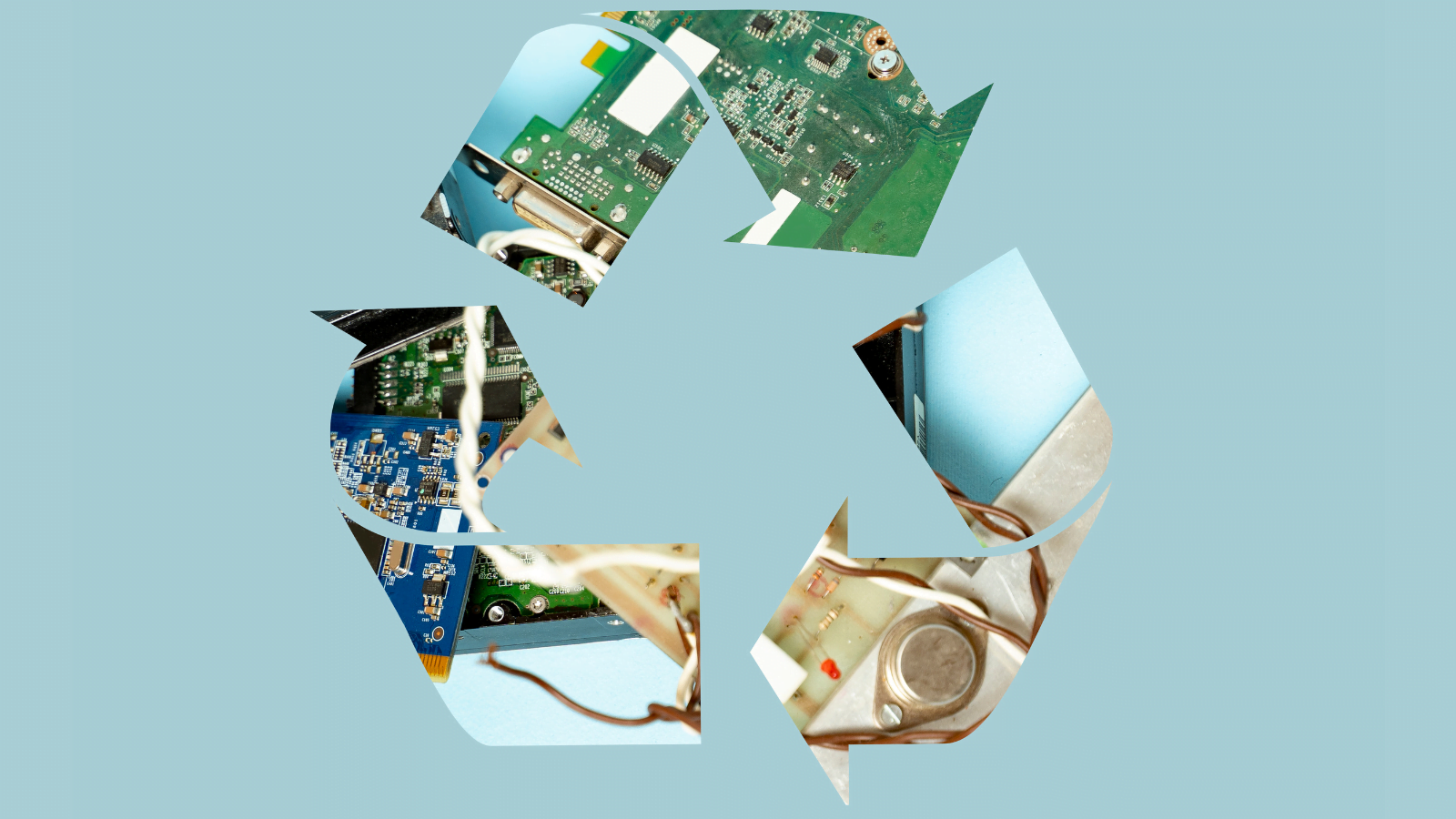
The waste management industry was slammed recently for exploiting a Waste Electrical and Electronic Equipment (WEEE) reuse loophole. This allows WEEE exports to vulnerable countries under the guise that they’re detained for repair. But the WEEE reuse reality might not be so bleak.
Environment Agency’s (EA) most recent data on WEEE tonnage doesn’t account for the increase in WEEE reuse and repair that’s taken place. What’s more, community reuse and repair workshops are popping up to take this greener mindset forward.
The WEEE exports loophole
Members of the Basel Convention, an international environmental treaty of 189 parties, met on 17 June and WEEE was a hot topic. An amendment, put forward by Ghana and Switzerland, was agreed on to protect developing counties from receiving unwanted imports of “WEEE for reuse”.
Exploitative waste operators can currently state their WEEE is destined for repair in said countries. This is a loophole that electronics manufacturers, particularly, have latched onto. But changes to make all shipments of WEEE, hazardous or not, need prior informed consent will come into effect from 2025 to shut this backdoor.
Jim Puckett, executive director and founder of Basel Action Network (BAN), said: “WEEE exports, particularly to developing countries, typically result in environmental harm even when the material is deemed non-hazardous.
“Due to the deadly emissions created when WEEE is processed thermally or in primitive acid-stripping operations, this new agreement will go a long way towards protecting the environment and human health worldwide.”
“While everyone realises that repair plays an important role, it cannot be used as [a] free ticket to export all manner of wastes on an empty claim and thereby hide from the Basel rules of the road.
“This opens the barn door to all manner of exploitative waste trade business. BAN, along with developing countries, aims to close that final loophole to prevent abuse in the name of reuse.”
The United Nations Environment Programme also made a statement to welcome the amendments: “This bold decision not only protects vulnerable countries from unwanted imports, but also fosters the environmentally sound management of e-wastes with state-of-the-art technology and thus contributes to a circular economy.”
Our WEEE reuse hopes
Another WEEE system has been scrutinised – this time it’s the way WEEE collection rates are measured in the UK.
Nigel Harvey, chief executive of WEEE compliance scheme Recolight, is not convinced that the latest data from EA shows a true comparison of WEEE collection rates for the first quarter of 2022 and the same period in 2021.
Harvey observed: “The interplay of lockdowns in 2021, rising inflation and the looming economic downturn in 2022 make comparisons of annual WEEE collections particularly challenging.
“What is clear is that a simple tonnage of collected WEEE is becoming less relevant as an assessment of the effectiveness of the WEEE system.”
With little difference between them, EA figures for Q1 2022 showed 119,870 tonnes of WEEE of all kinds collected and 120,554 tonnes for Q1 2021. But what about the unreported data – those of us who were repairing and reusing more of our waste electrical goods during tough times?
Community groups, at least, are leading the way with the WEEE reuse initiative and showing how times are changing. As well as the Fixing Factory in Brent, London, there are Repair Cafés popping up all over southeast England, including one in Chichester close to RJS Waste Management’s HQ.
The Fixing Factory not only helps decrease problems like WEEE exports but it also provides training and work experience for young people who want to work with electrical goods. What’s more, the laptops and tablets repaired at the workshops are given to people without digital access. It’s such a great project on so many levels!
So, there are changes afoot and, hopefully, the industry can continue along the path these communities have started – towards more actual WEEE reuse for the greater good.
Your trusty WEEE recycling operatives
Whether you work with electronics and have regular WEEE collection needs or have a one-off bulk load of IT equipment you’d like to live on, RJS Waste Management can help.
We always use WEEE regulations and environmental concerns as our guide so if you have a WEEE reuse project you’d like to donate to, once we’ve extracted any hazardous waste, we’ll deliver it. Contact us today to find out more.




